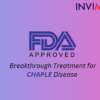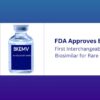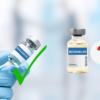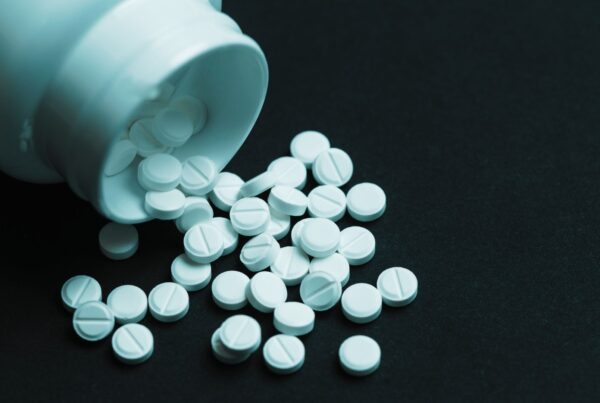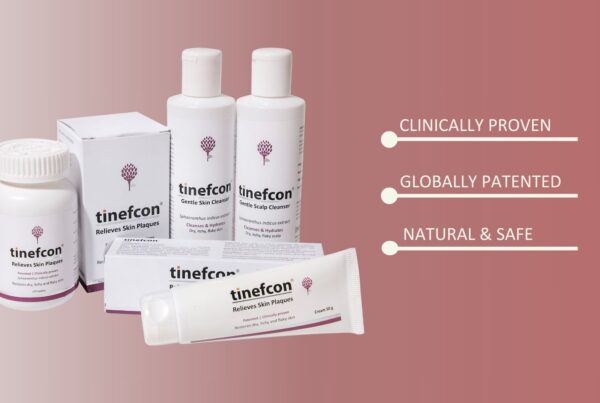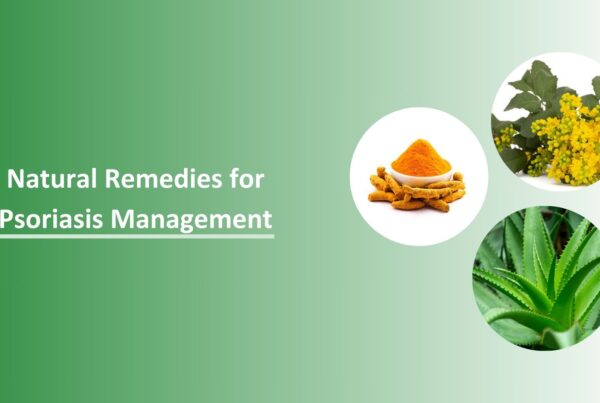Introduction
In genetics, Phenylketonuria (PKU) stands as a unique and complex challenge. This rare genetic disorder centers around the body’s inability to metabolize the amino acid phenylalanine, demanding careful management for a balanced life. Phenylketonuria affects around 1 in 24,000 individuals, and it is estimated that approximately 450,000 people worldwide are impacted by this genetic disorder.
Beyond the scientific complexities, the PKU journey is about the individuals navigating the genetic disorder. Each step, from diagnosis to daily dietary decisions, underscores a commitment to wellness and resilience.
What Is Phenylketonuria (PKU)?
Phenylketonuria (PKU) is an autosomal recessive inborn error of metabolism caused by a deficiency in the hepatic enzyme phenylalanine hydroxylase (PAH). Phenylalanine is a natural component of biochemical pathways, crucial for protein formation. However, complications arise when phenylalanine levels consistently surpass the normal range. The range of normal blood phenylalanine levels is less than 2 mg/dL, and levels above this range are considered abnormal, particularly when they exceed 4 mg/dL.
As an amino acid, phenylalanine is present in various protein-rich foods, as well as in the artificial sweetener aspartame. Without proper treatment, the excess buildup of phenylalanine leads to symptoms, notably impacting cognitive development and potentially resulting in intellectual disabilities. Effectively managing PKU entails a strategic combination of medications and dietary adjustments to alleviate symptoms and maintain a balanced biochemical environment within the body.
Phenylalanine Tolerance
The maximum allowable phenylalanine intake for individuals with PKU is determined to maintain blood concentrations within the target treatment range.
Target Ranges: For children up to 12 years and pregnant women on a pre-conception diet: 120 to 360 μmol/L. For patients ≥12 years: 120 to 600 μmol/L.
Individual Variability: Tolerance levels vary based on PKU severity, treatment adherence, protein substitute dosage, and use of sapropterin or Pegvaliase (for patients ≥16 years).
Influencing Factors: Growth, pregnancy, and illness can impact phenylalanine tolerance, and most diet-treated patients tolerate less than 500 mg/day of phenylalanine.
Therapeutic Impact: Sapropterin-responsive patients may double their tolerance or adhere to the WHO/FAO/UNU 2007-defined safe protein intake.
Prevalence of PKU
- A systematic review and meta-analysis published in 2020 aimed to determine the worldwide prevalence of classic PKU using neonatal screening program data. The study found that the overall worldwide prevalence of the disease is 6.002 per 100,000 neonates.
- The prevalence of PKU varies widely among ethnicities and geographic regions, affecting approximately 1 in 24,000 individuals worldwide.
- The prevalence of PKU is generally highest in European and Middle Eastern countries, with an estimated prevalence of 1 in 10,000 to 15,000 live births in White or East Asian populations.
- Phenylketonuria (PKU) prevalence rates differ across countries. Notably, Turkey reports a rate of 1 in 6,000, Iran at 1 in 4,698, and Egypt, while China experiences a lower prevalence at 1 in 17,000.
- On a more specific level, Italy has one of the highest reported prevalence rates globally, with 1 in 4,500 births affected, while Thailand reports one of the lowest at 1 in 227,273. These variations highlight the diverse impact of PKU across different regions, emphasizing the need for tailored awareness and management strategies.
A study published in Molecular Genetics and Metabolism in 2010 initiated the first molecular genetic analyses of PKU in India. The study analyzed the phenylalanine hydroxylase gene mutations in PKU patients in India.
The Inheritance pattern of PKU
Phenylketonuria (PKU) is a recessively inherited genetic disorder where both parents must be carriers for a child to inherit the condition. Carriers have one PKU gene and one normal gene, remaining symptom-free. When both parents are carriers, there is a 25% chance their child will have PKU, a 50% chance of being a carrier without symptoms, and a 25% chance of having two normal genes.
Children with PKU inherit a defective gene from each parent. Approximately 1 in 50 or 60 individuals carry a defective PKU gene, but only 1 in 15,000 Americans inherit two defective genes, resulting in PKU. The chances of inheriting PKU are equal for boys and girls.
If both parents are carriers, there’s a 25% chance that another child born to them will have PKU. Individuals with PKU can have children without PKU if their partner is unaffected, but their children will be carriers. Successfully managing PKU allows many parents to confidently decide on having more children.
Symptoms Of Phenylketonuria
In the beginning, newborns with phenylketonuria (PKU) do not exhibit any symptoms. Nevertheless, in the absence of treatment, signs of PKU typically emerge within a few months. Untreated PKU can manifest with a range of signs and symptoms, varying in severity. These may include:
- Distinct Odor: A musty odor in the breath, skin, or urine, attributed to elevated phenylalanine levels.
- Neurological Issues: Potential neurological problems like intellectual disability, seizures, and involuntary movements in the arms and legs.
- Behavioral Difficulties: Behavioral challenges such as frequent temper tantrums and episodes of self-harm.
- Physical Characteristics: Fairer skin, hair, and eyes compared to unaffected siblings due to phenylalanine’s role in pigment production.
- Skin Issues: Presence of eczema.
- Recurrent Illness: Frequent illnesses.
- Motor Disturbances: Jerking movements and tremors in the arms and legs.
- Epilepsy: Increased risk of epilepsy.
Early detection and management are crucial for mitigating the impact of PKU symptoms.
PKU During Pregnancy:
Maternal Phenylketonuria (PKU) syndrome, stemming from PKU effects during pregnancy, poses risks. Non-compliance with a special PKU diet before and during pregnancy can elevate phenylalanine levels, risking low birth weight, a small head, and heart problems for the baby. This may lead to delayed development, intellectual disability, and behavioral issues.
To minimize or avoid the teratogenic effects of phenylalanine, women with PAH deficiency should adhere to a Phe-restricted diet for several months before conception, maintaining plasma Phe concentrations between 120 and 360 µmol/L (2-6 mg/dL). Post-conception, continuous nutritional guidance is essential, coupled with weekly or biweekly monitoring of plasma Phe concentration to ensure target levels are achieved, along with proper energy intake containing the appropriate balance of protein, fat, and carbohydrates.
Different Types Of Phenylketonuria
There are a few different types of PKU based on the severity and nature of the mutations in the PAH gene. Here are the main types:
- Classic PKU: The most severe form, is characterized by minimal or no enzymatic activity of phenylalanine hydroxylase. Early diagnosis and dietary management are vital. In this state, plasma phenylalanine concentrations surpass 1,000 µmol/L, with a dietary tolerance of less than 500 mg/day.
- Variant PKU (Moderate PKU): Variant PKU is milder than classic PKU, with individuals having some residual enzyme activity and higher phenylalanine tolerance. Nonetheless, dietary management is essential to prevent adverse effects from phenylalanine accumulation, with individuals tolerating 350-400 mg of dietary phenylalanine per day.
- Benign Hyperphenylalaninemia (BHP): BHP, a milder form with partial phenylalanine hydroxylase deficiency, allows higher dietary phenylalanine tolerance. Monitoring and management are crucial, with affected infants having plasma Phe concentrations <600 µmol/L on a normal diet.
Role Of Phenylalanine Hydroxylase (PAH gene)
Phenylalanine Hydroxylase (PAH) is a gene that plays a crucial role in breaking down an amino acid called phenylalanine in our bodies. In individuals with Phenylketonuria (PKU), there is a deficiency in the enzyme phenylalanine hydroxylase (PAH), which is responsible for converting the amino acid phenylalanine into another amino acid called tyrosine. Since phenylalanine cannot be effectively metabolized in PKU patients, it can lead to elevated levels of phenylalanine in the blood, which can have various adverse effects on the body.
However, the deficiency of PAH in PKU patients also means that the conversion of phenylalanine to tyrosine is impaired. As a result, tyrosine levels may be lower than normal in individuals with PKU. Tyrosine is an essential amino acid that plays a crucial role in the synthesis of neurotransmitters and various proteins in the body.
The reduced levels of tyrosine in PKU patients may contribute to the following effects:
- Neurotransmitter Imbalance: Lower tyrosine levels, a precursor to neurotransmitters like dopamine, norepinephrine, and epinephrine, may impact their synthesis, potentially influencing mood, cognition, and overall neurological function.
- Protein Synthesis: Tyrosine is involved in the synthesis of proteins. Lower levels may impact the production of various proteins in the body, potentially affecting muscle function and overall protein metabolism.
Enzymatic Deficiency in PKU
As this gene facilitates the production of the essential enzyme for phenylalanine breakdown, the absence of this enzyme in individuals with PKU poses a significant risk. Without the necessary enzyme to metabolize phenylalanine, the ingestion of protein-containing foods or the consumption of aspartame, an artificial sweetener, can result in a hazardous accumulation of phenylalanine, leading to potentially severe health complications. The safe range of phenylalanine concentration in individuals with PKU is below 600 µmol/L (10 mg/dL) on an unrestricted diet
Throughout their lives, individuals with PKU, spanning from infants to adults, must adhere to a dietary regimen restricting phenylalanine, predominantly found in protein-rich foods. Recent advancements in medications may offer some individuals with PKU the possibility of incorporating higher or unrestricted amounts of phenylalanine into their diets. This underscores the ongoing progress in managing PKU and provides potential flexibility in dietary restrictions for those affected.
Diagnosis And Treatment
Diagnosis Of Phenylketonuria:
The PKU test is conducted within a day or two of your baby’s birth. To ensure precision in the results, the test is administered after the baby is at least 24 hours old and has consumed some protein in their diet. A nurse or lab technician obtains a few drops of blood from your baby’s heel, and a laboratory analyzes the blood sample for various metabolic disorders, including PKU.
Additional Tests: In cases where phenylalanine levels in the initial blood sample are elevated, healthcare providers perform supplementary tests to confirm the diagnosis and identify the specific type of PKU. These additional tests often involve further blood or urine examinations.
Genetic Testing: Given that PKU is a genetic disorder, genetic testing is employed to identify the specific mutation responsible for the symptoms. This test helps provide insights into the genetic basis of the condition.
In newborn screening tests, typically less than 5% of newborns undergo screening. In India, the cost of newborn screening varies based on the type of test. The Neoxpert Expanded Screening Panel is priced at ₹6,360 in Mumbai, the NEWBORN SCREENING PANEL 7 Test costs around INR 3000, and the NBS QUAD Test is priced at INR 1170. These tests aim to identify genetic and metabolic disorders in newborns.
A pilot national newborn screening program was initiated for the Udupi district in South India, funded by Grand Challenges Canada, to evaluate the need and feasibility of a national program. The project’s objectives included establishing a newborn screening lab, assessing awareness among parents and healthcare workers, determining the incidence of various disorders, and analyzing the cost-benefit ratio for implementing newborn screening for inborn errors of metabolism (IEM) including phenylketonuria (PKU)in India.
Treatment For Phenylketonuria:
There is currently no cure for PKU. Commencing treatment early and maintaining it throughout life is crucial in preventing intellectual disability and significant health issues associated with phenylketonuria (PKU).
Therapeutic VS Dietary Treatment
In Phenylketonuria (PKU), the primary treatment involves a combination of therapeutic intervention and a strict dietary regimen. The role of each is crucial for managing the condition effectively. The role of treatment versus diet in phenylketonuria (PKU) can be summarized as follows:
Dietary Management:
- The mainstay of treatment for PKU is a low-protein diet, known as diet therapy, which has been used successfully since the 1950s.
- The diet consists of natural foods with low protein content, special low-protein foods, and protein substitutes to provide the necessary amino acids that cannot be obtained through regular food.
- The diet should be started as soon after birth as possible and followed carefully throughout life to maintain the right levels of phenylalanine in the blood.
- The diet is tailored to an individual’s specific needs, including restricting intake of certain foods.
- Taking a PKU formula, a specialized nutritional supplement, throughout life to ensure adequate essential protein (without phenylalanine) and essential nutrients for sustained growth and overall health.
- People with PKU need to work with a healthcare professional to develop a suitable diet.
Therapeutic Treatments:
- In addition to diet therapy, other treatments such as large neutral amino acid supplementation and enzyme replacement therapy are being explored.
- Some individuals with PKU may require medications as part of their treatment plan. Curative options include pharmacological treatments like tetrahydrobiopterin and enzyme replacement therapies.
- FDA-approved medications, such as sapropterin dihydrochloride (Kuvan®) and PALYNZIQ, have shown promise in managing blood phenylalanine levels.
- Sapropterin, a medication, has been approved by the US Food and Drug Administration (FDA) as a treatment for PKU in a subset of patients
- Pegvaliase, an enzyme substitute was approved by the FDA in May 2018 to reduce phenylalanine levels in adults with PKU who have uncontrolled phenylalanine levels
- Alternative regimens, such as pharmacologic treatments, have been developed for older patients who have difficulty adhering to a strict diet.
Principles Of Dietary Management
The objectives of dietary management for Phenylketonuria (PKU) are threefold:
- Preventing Phenylalanine Accumulation: Strictly controlling the intake of natural protein and phenylalanine aims to prevent the excessive accumulation of phenylalanine in both the blood and the brain.
- Substituting Removed Natural Protein: The removal of natural protein from the diet necessitates the inclusion of safe or phenylalanine-free protein substitutes, known as synthetic protein, amino acid mixtures/supplements, or protein substitutes. All protein substitutes used are either phenylalanine-free or contain very low levels of phenylalanine.
- Achieving Normal Growth and Nutrition: The goal is to attain normal growth and nutritional status by ensuring a balanced intake of all necessary nutrients and energy. This includes the addition of vitamins and mineral supplements, either incorporated into the protein substitute or administered separately.
Diet to Limit Phenylalanine Intake
The dietary regimen for phenylketonuria (PKU) is a fundamental aspect of managing this disorder. Geared towards limiting the intake of phenylalanine, an amino acid that individuals with PKU cannot metabolize properly, the diet comprises a phenylalanine-free medical formula. Typically, managing Phenylketonuria (PKU) involves the avoidance or restriction of high-protein foods, including
- Animal-derived proteins: meat, chicken, fish, eggs, and cheese from cow, goat, or sheep milk.
- Plant-based proteins: nuts, seeds, quinoa, wheat, oats, rye, barley, Quorn™ (a fungal-based meat substitute), soya, tempeh, and pulses/lentils.
- Other sources: gelatin, plant algae like spirulina, and the sweetener aspartame.
Compliance with these dietary restrictions is crucial to prevent the accumulation of phenylalanine in individuals with PKU.
Role Of Nutrition
The nutritional goal for PKU management is to maintain plasma phenylalanine concentrations within safe limits, with advancements in the PKU diet offering palatable alternatives to amino acid formulas. In addition to the phenylalanine-free formula, special low-protein breads and foods with minimal phenylalanine content provide greater dietary flexibility and energy.
The PKU diet is a lifelong commitment, as research underscores the importance of maintaining blood phenylalanine levels within the safe range to prevent cognitive challenges. Regular monitoring of plasma phenylalanine concentrations is crucial to ensure the effectiveness of the diet.
Global Phenylketonuria (PKU) Market and Strategic Developments
The global market for phenylketonuria (PKU) is undergoing substantial growth, with an anticipated increase in market size throughout the forecast period. Valued at USD 610.3 million in 2022, the market is projected to exhibit a compound annual growth rate (CAGR) of 6.2% from 2022 to 2032, reaching an estimated USD 2.6 billion by 2033. Segmentation within the market includes hyperphenylalaninemia, mild PKU, moderate and variant PKU, classic PKU, and other categories.
The driving force behind this growth is the rising demand for specialized medical foods and nutritional supplements tailored to meet the dietary requirements of individuals with PKU. Despite this positive trajectory, certain factors may impede market expansion, such as a lack of understanding among healthcare professionals and the general populace. This could result in delayed diagnosis and treatment. Additionally, the costs associated with PKU therapies, encompassing enzyme replacement therapy and gene therapy, pose challenges to market growth.
North America stands as the dominant region in the PKU market, holding the largest market share throughout the forecast period. However, notable growth is observed in other regions, including Europe, Asia-Pacific, Latin America, and the Middle East and Africa.
Kuvan® (sapropterin dihydrochloride) and Palynziq® (pegvaliase-pqpz) are two approved drugs for phenylketonuria (PKU) treatment. The global market for PKU treatment, valued at USD 445.8 million in 2018, is projected to exhibit an 11.0% CAGR from 2019 to 2026. Manufactured by BioMarin Pharmaceutical, Inc., Kuvan is an oral drug, while Palynziq is an injectable enzyme therapy.
Notably, Kuvan ranks among BioMarin’s top products by revenue. Palynziq, designed to break down blood phenylalanine, holds an average list price of $267,000 annually, potentially generating over $1 billion in annual sales for BioMarin. The PKU market is estimated to encompass approximately 50,000 individuals worldwide.
FSMP For PKU Characteristics:
Foods tailored for individuals with Phenylketonuria (PKU) play a vital role in their treatment, specifically addressing the challenge of managing phenylalanine levels. These specialized foods are meticulously crafted with distinct characteristics:
- Low Protein Content: Engineered to be low in protein, especially phenylalanine, aiding individuals in maintaining safe blood phenylalanine levels.
- Protein Substitutes: Providing essential amino acids absent in typical high-protein foods like meat, fish, eggs, and dairy products.
- Phenylalanine-Free Formulas: Integral to the PKU diet, these carefully measured formulas replace traditional high-protein foods without introducing harmful phenylalanine levels.
- Special Low-Protein Foods: Commercially available items, such as low-protein bread and pasta, are tailored for those with PKU, offering dietary variety and flexibility.
- Amino Acid Mixtures and Protein Hydrolysates: Specialized diets created to manage PKU, ensuring essential nutrient intake while minimizing phenylalanine.
Conclusion:
The evolving PKU care landscape highlights progress in diagnostics, treatments, and collaborative research. Despite growth, challenges like delayed diagnosis persist. The industry’s commitment to strategic developments reflects a dedication to improving global treatment options. Studies stress the crucial importance of early PKU diagnosis and treatment to prevent irreversible effects, underscoring a collective commitment to a healthier future for those with this rare metabolic disorder.
Written By
Aswini PriyaMedical Content Writer
Reviewed By
Dr. AnchalMedico Expert
Last Updated
20 Feb 2024 | 11:38 AM (IST)





